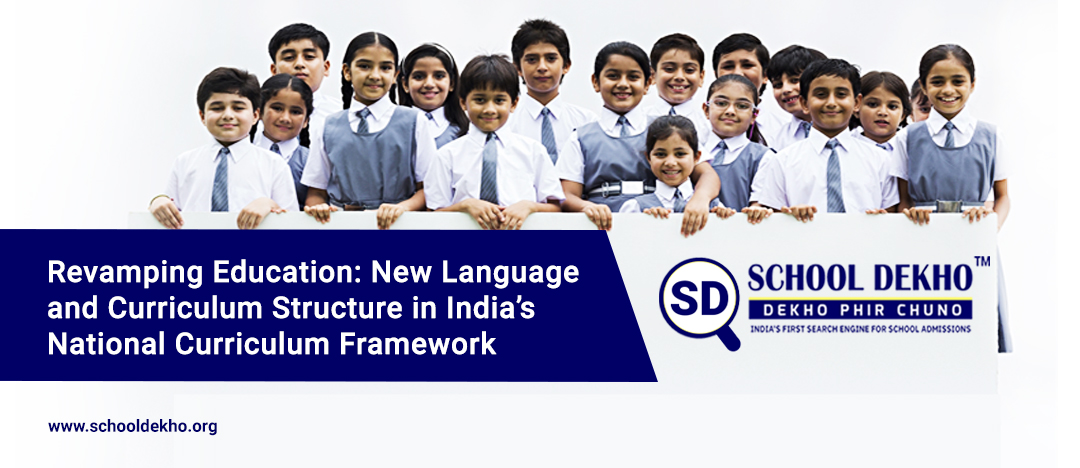Revamping Education: New Language and Curriculum Structure in India's National Curriculum Framework

The recently unveiled National Curriculum Framework has ushered in a significant transformation in the Indian education system, emphasizing the study of native Indian languages and introducing a revised curriculum structure. This overhaul aims to offer students a more comprehensive and diverse learning experience while promoting the rich linguistic heritage of the nation.
Native Indian Languages: A Mandatory Study:
The most notable change introduced by the National Curriculum Framework is the compulsory study of native Indian languages. From classes VI to X, students will study three languages, including two native languages. This move not only preserves and promotes India's linguistic diversity but also reinforces the significance of regional languages in the education process.
Evolution of Languages in Secondary Education:
In classes XI and XII, the curriculum places emphasis on retaining the native Indian language while also incorporating the study of a second language. This change is reflective of the importance of linguistic identity and proficiency as students progress into higher education and beyond.
Curriculum Restructuring and Multidisciplinary Learning:
The National Curriculum Framework also introduces a comprehensive curriculum structure that embraces multidisciplinary learning. Students from classes IX to XII will study subjects from diverse groups including art education, physical education and well-being, vocational education, social science and interdisciplinary areas, and mathematics and computational thinking, and science. This approach enriches their educational journey by fostering a holistic understanding of various disciplines.
Exam Modifications and Assessment Approach:
Under the revamped curriculum, the assessment approach is also undergoing changes. For Group 1 subjects, exams will be conducted for seven subjects, including languages. Additionally, Group 2 subjects will involve an internal exam at the school level with external examiner participation. This shift in assessment methods aims to evaluate students' understanding and knowledge more comprehensively.
Flexibility in Course Design and Structure:
Another significant transformation brought about by the National Curriculum Framework is the transition from an annual academic pattern to a semester-based system. This modification offers educators and students greater flexibility in designing and tailoring courses according to their learning needs and preferences.
Promoting Multidisciplinary Study and Choice:
The framework emphasizes the importance of multidisciplinary study by dividing the secondary stage into two phases — Classes IX-X and Classes XI-XII. This restructuring allows students to explore a broader range of subjects, fostering a well-rounded and comprehensive education that prepares them for diverse career paths.
Empowerment through Choice and Supplemental Subjects:
In addition to offering a more comprehensive curriculum, the framework also provides students with the opportunity to choose subjects of interest. In Classes XI and XII, students must choose four subjects from at least two of the three available groups. The framework also retains the provision for students to pursue a seventh subject, similar to the current system.
Embracing a Transformative Future:
The National Curriculum Framework signifies a transformative step toward enhancing the quality of education in India. By promoting the study of native Indian languages, adopting a multidisciplinary approach, and offering greater flexibility in curriculum design, the framework equips students with the skills, knowledge, and values necessary for success in a rapidly changing world.
As India's educational landscape evolves, the National Curriculum Framework reflects the nation's commitment to providing students with a holistic, culturally rich, and forward-looking education. This shift not only enriches students' learning experiences but also paves the way for a more inclusive, diverse, and globally competitive generation.
Contact with Us
Call: 1800 - 2588 - 074
Mail: info@schooldekho.org
Student’s Best Education Portal | School Dekho | India's First School Search Engine | Best Schools Near Me | Find Schools Near Me | Dekho Phir Chuno
#dekhophirchuno






